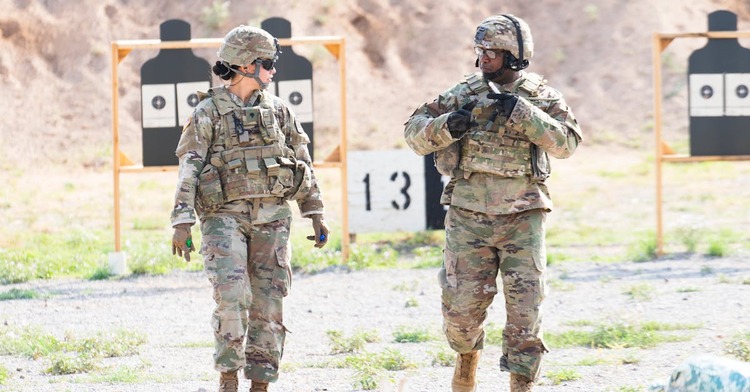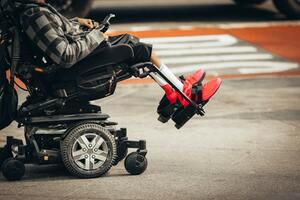
Disabled Veteran Plates Online
Disabled Veteran Plates Online - Disabled veteran plates offer a way to honor and recognize the sacrifices made by vets while also providing essential benefits like parking privileges. Obtaining these plates online has become increasingly accessible, allowing ex-soldiers to avoid the hassle of in-person DMV visits. This article will guide you through the process of getting DV tags online, including the eligibility criteria, the application process, and how to leverage services like HandicapMD.com to streamline the process. We will also discuss the specific requirements for different states, ensuring that you have all the necessary information to secure your tags without unnecessary complications.
Understanding DV Plates
Ex-soldier tag are a special type of license tag offered to ex-soldiers who have sustained injuries or disabilities as a result of their service. These tags often come with specific privileges, such as parking in designated handicapped spaces, reduced registration fees, or even toll exemptions in some states. The tags are typically marked with a special emblem or insignia that identifies the vehicle owner as a in injured warrior.
Eligibility Criteria for DV Plates
The eligibility criteria for DV tags can vary by state, but generally, ex-soldiers must meet the following conditions:
- Service-Connected Disability: The vet must have a disability that is directly connected to their military service. This is usually verified through documentation from the Department of ex-soldiers Affairs (VA).
- Disability Rating: Most states require a minimum disability rating, often around 50% or higher. This rating is determined by the VA and reflects the severity of the ex-soldiers disability.
- Proof of Service: ex-soldiers must provide proof of their military service, typically through a DD-214 form or similar documentation.
- Residency Requirements: Some states may require the ex-soldier to be a resident of that state to apply for the tags.
Steps to Obtain DV tags Online
Getting your DV tags online is a straightforward process, but it requires attention to detail and proper documentation. Below are the steps you need to follow:
Step 1: Verify Your Eligibility
Before starting the application process, ensure that you meet the eligibility criteria mentioned above. If you are unsure about your disability rating or need to obtain the necessary documentation, contact the VA or use their online portal to access your records.
Step 2: Gather Required Documentation
To apply for DV tags, you will need to gather the following documents:
- Disability Verification: A letter or statement from the VA confirming your service-connected disability and your disability rating.
- Proof of Service: Your DD-214 form or other official military service records.
- State-Specific Forms: Most states have specific forms for applying for DV tags. These can usually be downloaded from the state's DMV website.
Step 3: Choose Your State's DMV Portal
Each state has its own process for applying for DV tags online. Visit your state's DMV website to find the specific portal or section dedicated to DV tags. This section will provide detailed instructions and links to the necessary forms.
Step 4: Complete the Application Online
Fill out the required forms online, ensuring that all information is accurate and matches your official documentation. Most DMV portals will allow you to upload your documents directly, streamlining the process.
Step 5: Pay the Fees (if applicable)
Some states waive registration fees for DV tags, while others may charge a nominal fee. Be prepared to pay these fees online through the DMV portal.
Step 6: Submit Your Application
After completing the forms and paying any necessary fees, submit your application. You will typically receive a confirmation email or message from the DMV, indicating that your application has been received and is being processed.
Step 7: Receive Your tags
Once your application is approved, the DMV will mail your DV ags to the address you provided. Processing times can vary by state, but you can usually expect to receive your tags within a few weeks.
Using HandicapMD.com to Obtain Ex-soldier tag
HandicapMD.com offers a specialized service that can simplify the process of obtaining DV tags online. With a focus on disability tags and related services, HandicapMD.com is equipped to assist ex-soldiers in navigating the often complex requirements of different states. Here's how you can use HandicapMD.com to secure your DV tags:
Step 1: Visit HandicapMD.com
Start by visiting the HandicapMD.com website and navigating to the section dedicated to DV tags. Here, you will find detailed information about the services offered and how they can assist you in obtaining your tags.
Step 2: Sign Up for an Account
Creating an account on HandicapMD.com is the first step in accessing their services. This account will allow you to manage your application process, upload necessary documents, and communicate with their support team.
Step 3: Provide Your Information
HandicapMD.com will ask for your basic information, including your name, contact details, and state of residence. You will also need to provide details about your disability and military service.
Step 4: Upload Required Documents
Upload your VA disability verification, DD-214 form, and any state-specific forms directly to your HandicapMD.com account. The platform offers secure document storage, ensuring that your sensitive information is protected.
Step 5: Let HandicapMD.com Handle the Application Process
Once your documents are uploaded, HandicapMD.com will take care of the rest. They will complete the necessary forms, submit your application to the appropriate state DMV, and keep you informed of the progress.
Step 6: Receive Your tags
After your application is approved, HandicapMD.com will coordinate with the DMV to have your tags mailed directly to you. This service ensures that you don't have to worry about the details, allowing you to focus on more important aspects of your life.
State-Specific Requirements for DV tags
While the general process for obtaining DV tags is similar across the United States, each state may have specific requirements or additional steps. Below, we outline the requirements for some of the most populous states:
California
In California, vets must have a service-connected disability and a disability rating of at least 50% to qualify for DV tags. The California DMV offers an online application process, where vets can submit their documents and pay any applicable fees. California also provides the option to personalize the tags for an additional fee.
Texas
Texas requires vets to have a service-connected disability and be eligible for compensation under Title 38, U.S. Code. The Texas DMV allows vets to apply for their tags online, and there are no registration fees for DV tags in the state. Additionally, Texas offers toll exemptions for vehicles displaying DV tags.
Florida
In Florida, ex-soldiers with a 100% service-connected disability are eligible for DV tags at no cost. ex-soldiers with a lower disability rating may still qualify but may need to pay a fee. The Florida DMV offers an online application portal, and vets must provide their VA disability letter and proof of residency.
New York
New York requires ex-soldiers to have a service-connected disability and be eligible for VA compensation to qualify for DV tags. The New York DMV allows online applications, and vets must submit their disability verification and proof of service. New York also offers a variety of tag designs, including personalized options.
Illinois
In Illinois, ex-soldiers with a service-connected disability are eligible for DV tags. The Illinois DMV provides an online application process, where ex-soldiers can submit their documents and pay any necessary fees. Illinois also offers reduced registration fees for vehicles displaying the tags.
Benefits of DV tags
DV tags offer more than just a symbol of honor; they come with tangible benefits that can make daily life easier for veterans. Below are some of the key benefits:
Parking Privileges
One of the most significant benefits of DV tags is the ability to park in designated handicapped spaces. This can be especially valuable for ex-soldiers with mobility issues, allowing them easier access to buildings and facilities.
Toll Exemptions
In some states, vehicles displaying DV tags are exempt from toll fees. This can save ex-soldiers a significant amount of money, especially if they frequently travel on toll roads.
Reduced Registration Fees
Many states offer reduced or waived registration fees for vehicles with the tags. This can lower the overall cost of vehicle ownership for ex-soldiers, providing financial relief.
Access to Certain Restricted Areas
In some states, DV tags may grant access to areas that are otherwise restricted, such as certain military bases or national parks. This benefit can enhance the quality of life for ex-soldiers, allowing them to enjoy outdoor activities and other amenities.
Recognition and Honor
Beyond the practical benefits, DV tags serve as a visible symbol of the vets service and sacrifice. This recognition can be a source of pride and honor for ex-soldiers, as well as a reminder to others of the importance of supporting those who have served.
Common Challenges and How to Overcome Them
While the process of obtaining DV tags online is generally straightforward, there are some common challenges that ex-soldiers may encounter. Here are a few potential obstacles and how to overcome them:
Difficulty Accessing VA Documentation
Some ex-soldiers may have trouble accessing their VA documentation, such as their disability verification letter. If you encounter this issue, try the following solutions:
- Use the VA's Online Portal: The VA offers an online portal where ex-soldiers can access their records and download necessary documents. This is often the quickest way to obtain what you need.
- Contact the VA Directly: If you are unable to access your documents online, contact the VA directly. They can provide assistance and send you the necessary paperwork.
Confusion About State-Specific Requirements
Each state has its own requirements for DV tags, which can be confusing for ex-soldiers who move between states or are unfamiliar with the process. To avoid confusion:
- Research State Requirements: Visit your state's DMV website to review the specific requirements for the tags. Make sure you have all the necessary documents before starting the
application process.
Understanding an Injured Vet
A former service member who has sustained a physical or mental disability due to injury, illness, or conditions related to military service is recognized as an ex-soldier. These individuals have often made significant sacrifices, leading to various impairments, and as a result, are entitled to specific benefits and support to help them reintegrate into civilian life.
Historical Background and Development
The recognition of service members with disabilities has deep historical roots. Since ancient times, warriors injured in battle were often compensated in some form by their leaders. However, the modern understanding of these individuals has evolved significantly, especially in the last century.
The World Wars brought an unprecedented number of injured soldiers home, leading to greater awareness of their needs. This prompted the creation of programs and legislation to support these individuals. The establishment of the ex-soldiers Administration (now the Department of ex-soldiers Affairs) in the United States in 1930 marked a significant step in institutionalizing care and benefits for those with service-related disabilities.
Types of Disabilities
Service members who return home with disabilities often face a range of physical and mental health challenges. These can be broadly categorized as physical disabilities and mental health conditions.
Physical Disabilities:
- Amputations: Many former soldiers have lost limbs due to combat injuries or accidents, necessitating the use of prosthetics and rehabilitation services.
- Paralysis: Spinal cord injuries can lead to partial or complete paralysis, requiring lifelong care and assistive devices like wheelchairs.
- Traumatic Brain Injury (TBI): Explosions and other traumas can cause TBIs, leading to cognitive and physical impairments.
- Hearing and Vision Loss: Exposure to loud noises and blasts can result in hearing loss, while injuries or conditions like glaucoma can impair vision or cause blindness.
Mental Health Disabilities:
- Post-Traumatic Stress Disorder (PTSD): One of the most common mental health conditions among service members, PTSD results from experiencing or witnessing traumatic events, leading to severe anxiety, depression, and other psychological issues.
- Depression and Anxiety Disorders: Many individuals suffer from these conditions due to the stresses of military service and the challenges of adjusting to civilian life.
- Substance Use Disorders: Some turn to drugs or alcohol to cope with their challenges, leading to addiction and complicating rehabilitation.
- Military Sexual Trauma (MST): Those who have experienced sexual assault or harassment during service may suffer long-term psychological effects.
Causes of Disabilities in Former Service Members
Disabilities among those who have served can arise from a variety of causes, both during and outside of combat situations. Some common causes include:
Combat Injuries: The nature of military service places individuals in dangerous situations, where they risk injury from gunfire, explosives, or other violence, potentially leading to permanent physical disabilities.
Training Accidents: Rigorous military training can result in accidents. Falls, equipment malfunctions, or live-fire exercises can cause disabling injuries.
Exposure to Hazardous Materials: Exposure to substances like Agent Orange in Vietnam or burn pits in Iraq and Afghanistan can lead to long-term health issues, including cancer and respiratory problems.
Mental Trauma: Witnessing death and destruction during service can have severe psychological impacts, leading to conditions such as PTSD, depression, and anxiety.
Sexual Assault or Harassment: MST is a significant issue within the military, and those who experience it may suffer from psychological disabilities as a result.
Recognition and Benefits
Governments, particularly the U.S., recognize the sacrifices made by those with service-related disabilities and offer a range of benefits and services designed to support them. These benefits aim to improve their quality of life and assist in their reintegration into civilian society.
Disability Compensation:
- Individuals with service-connected disabilities are eligible for disability compensation. This tax-free monthly payment varies based on the severity of the disability, as determined by the Department of ex-soldiers Affairs (VA) using a percentage-based rating system.
Healthcare Services:
- The VA provides comprehensive healthcare services, including medical treatment, rehabilitation, mental health services, and specialized care for conditions related to service-connected disabilities.
Education and Vocational Rehabilitation:
- Educational benefits under programs like the GI Bill help cover the cost of tuition, books, and housing while pursuing higher education or vocational training. Vocational rehabilitation programs assist in retraining for new careers that accommodate physical or mental impairments.
Housing Assistance:
- The VA offers programs like the Specially Adapted Housing (SAH) grant, which provides funds to modify homes for accessibility. The VA Home Loan program also offers favorable terms for purchasing homes.
Employment Support:
- Finding employment can be challenging, but various programs assist in job placement, resume building, and career counseling. The federal government also offers hiring preferences, giving an advantage in securing government jobs.
Pension Benefits:
- Those who are permanently and totally injured may be eligible for a VA pension, providing financial support to individuals unable to work due to their impairments.
Caregiver Support:
- Many require assistance from caregivers, often family members. The VA offers support programs, including training, respite care, and financial assistance through the Program of Comprehensive Assistance for Family Caregivers (PCAFC).
Adaptive Sports and Recreation:
- Engaging in physical activities is beneficial both physically and mentally. The VA and other organizations offer adaptive sports programs that provide opportunities to participate in sports like wheelchair basketball, skiing, and cycling.
Challenges Faced by Those with Service-Related Disabilities
Despite the benefits available, many face significant challenges as they transition back to civilian life. Some of these challenges include:
Healthcare Access:
- Access to healthcare services can be difficult, especially for those in rural areas. Long wait times for appointments and the complexity of navigating the VA system can be barriers to receiving care.
Mental Health Stigma:
- Mental health conditions, such as PTSD and depression, are often stigmatized, leading some individuals to avoid seeking help. This stigma can exacerbate conditions and hinder reintegration into society.
Employment Barriers:
- Physical limitations, lack of transferable skills, or employer bias can make finding employment difficult. Adjusting to civilian work environments after years of military service can also be challenging.
Homelessness:
- Those with service-related disabilities are at higher risk of homelessness due to factors like mental health issues, unemployment, and lack of family support. The VA and other organizations work to address ex-soldier homelessness, but the issue persists for some.
Isolation:
- The transition from military to civilian life can be isolating, especially if physical or mental impairments limit social participation. This isolation can contribute to mental health problems and hinder overall well-being.
Access to Benefits:
- Navigating the VA system and accessing benefits can be complex and time-consuming. Some individuals may struggle to understand eligibility requirements or face delays in receiving entitled benefits.
Advocacy and Support Organizations
Numerous organizations advocate for and support individuals with service-related disabilities, working to ensure they receive the benefits and services they deserve. Some of these organizations include:
Disbled American ex-soldiers (DAV):
- DAV is a nonprofit organization providing services like benefits claims assistance, transportation to medical appointments, and advocacy for ex-soldiers' rights.
Wounded Warrior Project (WWP):
- WWP supports wounded individuals through programs focused on mental health, physical health, career counseling, and community engagement. The organization also advocates for policies that benefit those with disabilities.
Paralyzed ex-soldiers of America (PVA):
- PVA focuses on individuals with spinal cord injuries or diseases, providing resources for healthcare, rehabilitation, and advocacy. The organization also promotes research to improve the quality of life for paralyzed individuals.
ex-soldiers of Foreign Wars (VFW):
- VFW advocates for ex-soldiers' rights and provides support services to ex-soldiers and their families. The organization helps individuals access their benefits and offers community-based programs to enhance well-being.
National Alliance on Mental Illness (NAMI) ex-soldiers and Military Resource Center:
- NAMI offers resources and support for individuals with mental health conditions, working to reduce stigma and improve access to care.
American Legion:
- The American Legion is a ex-soldier service organization that assists with benefits claims, promotes patriotic values, and advocates for policies that support those with service-related disabilities.
The Future of Support
As society continues to recognize the sacrifices made by those with service-related disabilities, discussions on improving support systems continue. Key areas of focus include:
Improving Healthcare Access:
- Efforts to expand healthcare access are ongoing, particularly for those in rural areas. Telehealth services are becoming more prevalent, allowing remote care. There is also a push to reduce wait times and simplify the process of accessing VA healthcare.
Enhancing Mental Health Services:
- Addressing mental health needs remains a top priority. This includes increasing the availability of services, reducing stigma, and developing innovative treatment approaches like virtual reality therapy and peer support programs.
Expanding Employment Opportunities:
- There is growing emphasis on helping individuals find meaningful employment, including expanding vocational training programs, providing incentives for employers, and supporting entrepreneurship among ex-soldier.
Strengthening Housing Support:
- Reducing homelessness remains critical. Efforts are underway to increase affordable housing, improve access to housing assistance programs, and provide comprehensive support services to prevent homelessness.
Advancing Research and Innovation:
- Ongoing research into the causes and treatment of disabilities affecting service members is essential. This includes developing new prosthetics, improving rehabilitation techniques, and exploring ways to enhance mental health care.
Advocating for Policy Changes:
- Advocacy organizations continue to push for policy changes that benefit those with service-related disabilities, including efforts to increase funding for VA programs, improve the disability claims process, and expand eligibility for benefits.
Individuals with service-related disabilities have made significant sacrifices, and it is society's responsibility to ensure they receive the support and care they need. While progress has been made in recognizing and addressing their needs, challenges remain. By continuing to improve healthcare access, enhance mental health services, expand employment opportunities, and strengthen housing support, we can better serve those who have given so much in defense of freedom.
Advocacy and support organizations play a crucial role in this effort, working tirelessly to ensure that those with service-related disabilities are not forgotten. As we look to the future, it is essential to continue advocating for policies and programs that will improve their lives and honor their service.
The journey does not end with military service; for many, the challenges faced upon returning to civilian life are just as significant as those encountered in uniform. By providing comprehensive support, we can help these individuals overcome their challenges and lead fulfilling lives.
- Use HandicapMD.com: HandicapMD.com can simplify this process by handling the application on your behalf, ensuring that all state-specific requirements are met.
Delays in Processing
While most states offer efficient online application processes, delays can still occur, especially if there is a high volume of applications. To minimize delays:
- Submit Your Application Early: Don't wait until the last minute to apply for your ex-soldier tags. Submit your application as soon as you have all the necessary documentation.
- Follow Up with the DMV: If you haven't received your tags within the expected timeframe, follow up with the DMV to check the status of your application.
Addressing Issues with Online Portals
Some ex-soldiers may experience technical issues when using online DMV portals. If you encounter problems:
- Clear Your Browser Cache: Sometimes, clearing your browser cache can resolve issues with loading or submitting forms.
- Try a Different Browser or Device: If you're having trouble with one browser or device, try accessing the portal from a different one.
- Contact Technical Support: Many DMV websites offer technical support. Reach out to them if you're experiencing persistent issues.
How HandicapMD.com Simplifies the Process
HandicapMD.com is designed to make the process of obtaining ex-soldier tags as simple and stress-free as possible. Here's how the platform can benefit you:
Personalized Assistance
HandicapMD.com offers personalized assistance tailored to your specific needs. Whether you're having trouble gathering your documents or need help understanding state-specific requirements, their team is there to guide you through every step of the process.
Streamlined Application Process
By handling the application process on your behalf, HandicapMD.com saves you time and effort. You won't have to worry about filling out complicated forms or navigating confusing DMV portals. Instead, you can rely on HandicapMD.com to submit your application accurately and efficiently.
Secure Document Storage
HandicapMD.com provides a secure platform for storing your sensitive documents, such as your VA disability verification and DD-214 form. This ensures that your personal information is protected throughout the application process.
Ongoing Support
Even after your application has been submitted, HandicapMD.com offers ongoing support. If there are any issues or delays, their team will work with the DMV to resolve them and keep you informed of the status of your application.
Access to Additional Resources
In addition to helping with Ex-soldier tag, HandicapMD.com offers a range of other services for ex-soldiers, including assistance with parking permits and other disability-related documentation. This makes it a valuable resource for ex-soldiers seeking comprehensive support.
Resources
For ex-soldiers seeking additional information or resources, the following high domain authority (DA) websites offer valuable insights and support:
- U.S. Department of ex-soldiers Affairs (VA) - The VA provides comprehensive information about benefits, services, and resources for vets, including disability benefits and documentation.
- Injured American ex-soldiers (DAV) - DAV is a nonprofit organization that offers support and advocacy for Ex-soldier tags, including assistance with benefits and resources.
- Military.com - Military.com provides news, benefits information, and resources for military members, ex-soldiers, and their families.
- National Park Service (NPS) - The NPS offers information about free access to national parks for ex-soldiers, including how to obtain a free Access Pass.
- Department of Motor Vehicles (DMV) - DMV.org offers a comprehensive guide to DMV services across the United States, including information on applying for DV tags.
- HandicapMD.com - HandicapMD.com is the go-to resource for ex-soldiers seeking online assistance with accessible tags, Ex-soldier tags, and related services.
Conclusion
Obtaining DV tags online is a process that honors your service while providing valuable benefits. By understanding the eligibility requirements, gathering the necessary documentation, and following the steps outlined in this guide, you can secure your tags with ease. Additionally, leveraging the services of HandicapMD.com can simplify the process, ensuring that you receive your tags without the hassle of navigating state-specific requirements on your own.
As a ex-soldier, you have made significant sacrifices for your country, and it is only fitting that you receive the recognition and benefits you deserve. Ex-soldiers tags are just one way to honor your service, and by following the guidance provided in this article, you can obtain them with confidence.
For more information and personalized assistance, visit HandicapMD.com, your trusted resource for online ex-soldiers tags in any state Disabled Veteran Plates Online.
.png)






